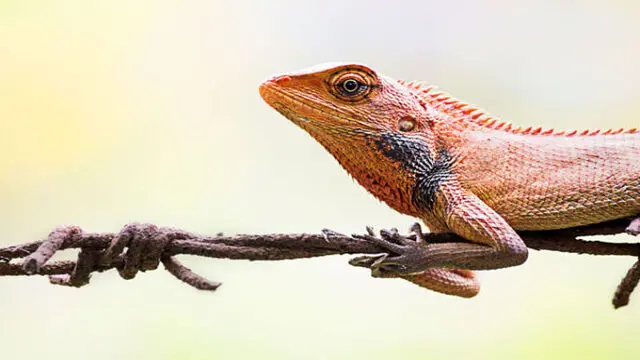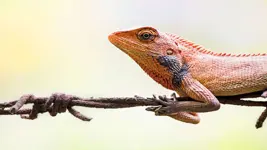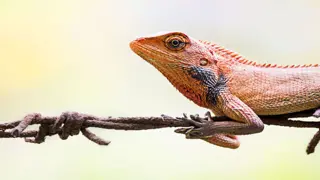
Online Herpetology Diploma
Herpetology Diploma with free certificate and transcript
Elearn College
Summary
- Diploma Certificate and Transcript - Free
- Exam(s) / assessment(s) is included in price
Add to basket or enquire
Overview
A comprehensive study into the fascinating world of reptiles and amphibians. This course offers aspiring herpetologists and enthusiasts a unique opportunity to gain in-depth knowledge about these remarkable creatures from the comfort of their own homes.
Starting with the basics, the Herpetology Diploma offers an insightful introduction to herpetology, setting the stage for learners to understand the significance and nuances of this field. As the course progresses, learners will be introduced to the intricate anatomy and physiology of reptiles and amphibians. From understanding the workings of their unique bodies to the way they’ve evolved, this section promises a captivating journey into their internal mechanisms.
Course media
Description
One of the standout features of the Herpetology Diploma is its exploration into the diversity of habitats and the adaptations of these creatures. From marshes to deserts, and forests to urban environments, reptiles and amphibians have found ingenious ways to survive and thrive. As you navigate through this section, you’ll discover the various habitats and the fascinating adaptations that allow these creatures to inhabit them.
But it’s not just about habitats and anatomy. The course dives deep into the feeding ecology and predation of herpetofauna. Learn about their hunting techniques, prey choices, and their role in the ecological food web. This is complemented by an exploration into their reproduction and life history strategies, shedding light on their mating rituals, nesting behaviours, and life cycles.
One cannot study herpetofauna without acknowledging the challenges they face. The Herpetology Diploma does not shy away from discussing the pressing issues of conservation and the threats posed to these species. From habitat destruction to climate change, learners will grasp the challenges these creatures face and the efforts made to conserve them.
Of significant importance is understanding the relationship between humans and herpetofauna. The course discusses in detail herpetofauna and human interactions, touching upon the misconceptions, myths, and realities of this relationship. This section aims to foster a sense of respect and appreciation for these often misunderstood creatures.
For those looking to engage in hands-on work or research in the field, the Herpetology Diploma provides invaluable insights into field techniques and research methods in herpetology. From tracking to data collection, learners will acquire the skills necessary to conduct meaningful research in the wild.
Moreover, with a growing interest in reptiles and amphibians as pets, the course includes a dedicated section on captive care and management of these creatures. From dietary needs to habitat setups, this segment equips learners with knowledge to care for reptiles and amphibians responsibly and ethically.
Lastly, looking ahead, the course examines the future of herpetology and the ongoing conservation efforts. As challenges grow, so do the efforts to conserve and protect. Learners will be introduced to the latest research, breakthroughs, and initiatives shaping the future of herpetology.
In summary, the online Herpetology Diploma is not just a course; it’s a journey. A journey through the captivating world of reptiles and amphibians. Whether you’re an aspiring herpetologist, a teacher, a pet owner, or simply an enthusiast, this course promises a wealth of knowledge, insights, and inspiration. Join us on this remarkable adventure and gain a deeper appreciation for the incredible world of herpetofauna.
What you will learn
1:Introduction to Herpetology
2:Anatomy and Physiology of Reptiles and Amphibians
3:Diversity of Habitats and Adaptations
4:Feeding Ecology and Predation
5:Reproduction and Life History Strategies
6:Conservation and Threats to Herpetofauna
7:Herpetofauna and Human Interactions
8:Field Techniques and Research Methods in Herpetology
9:Captive Care and Management of Reptiles and Amphibians
10:The Future of Herpetology and Conservation Efforts
Who is this course for?
Anyone having an interest in Herpetology
Requirements
There are no entry requirements. No background training or qualifications are required. Anyone can enrol at any time, beginners, intermediates and experienced all year round.
Career path
On successful completion, learners will have a comprehensive understanding of the principles and practices of Herpetology and will have developed some essential skills required to take their first steps into this industry. Career opportunities in this field include:
Herpetologist
Wildlife Biologist
Environmental Consultant
Zookeeper
Research Scientist
Park Ranger
Wildlife Educator
Ecologist
Questions and answers
Currently there are no Q&As for this course. Be the first to ask a question.
Certificates
Diploma Certificate and Transcript
Digital certificate - Included
Reviews
Currently there are no reviews for this course. Be the first to leave a review.
Legal information
This course is advertised on reed.co.uk by the Course Provider, whose terms and conditions apply. Purchases are made directly from the Course Provider, and as such, content and materials are supplied by the Course Provider directly. Reed is acting as agent and not reseller in relation to this course. Reed's only responsibility is to facilitate your payment for the course. It is your responsibility to review and agree to the Course Provider's terms and conditions and satisfy yourself as to the suitability of the course you intend to purchase. Reed will not have any responsibility for the content of the course and/or associated materials.



